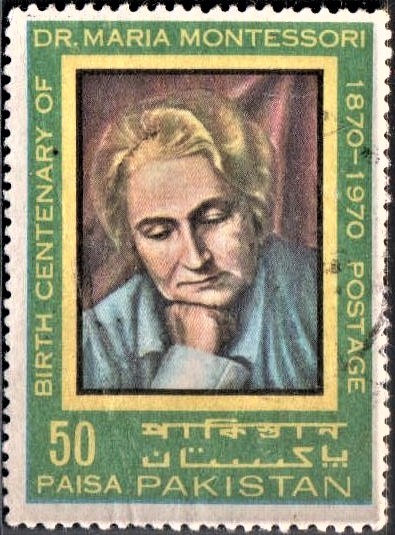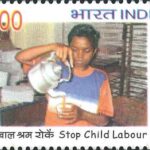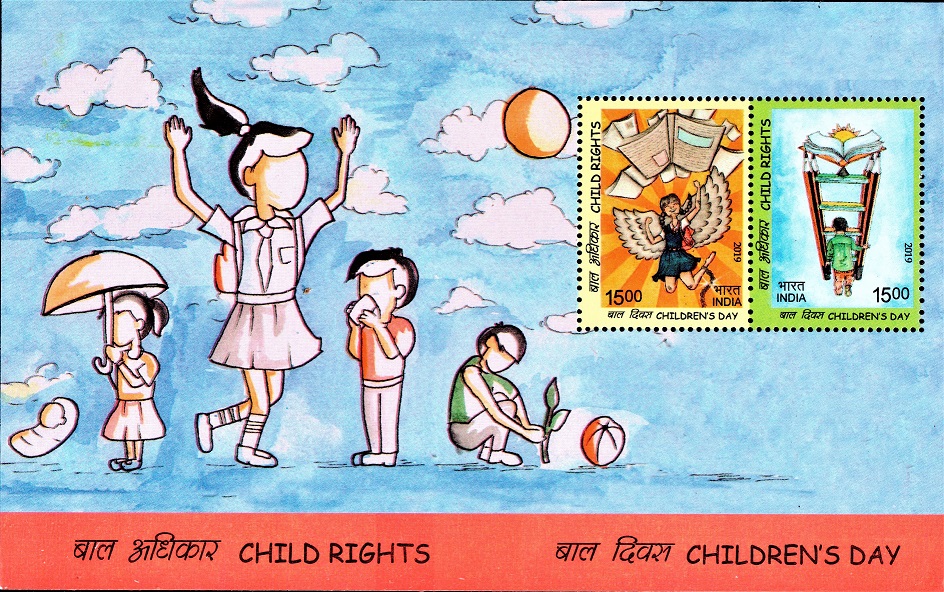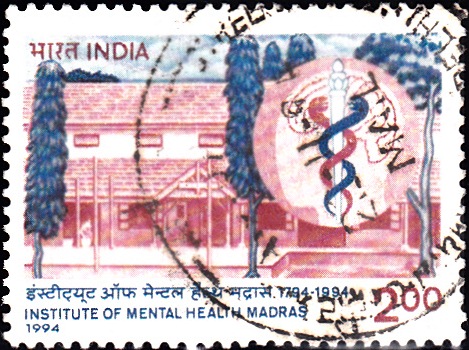
India on Dr. Maria Montessori
A commemorative postage stamp on the birth centenary of Maria Montessori, an Italian physician and educator, founder of the Montessori method of education :

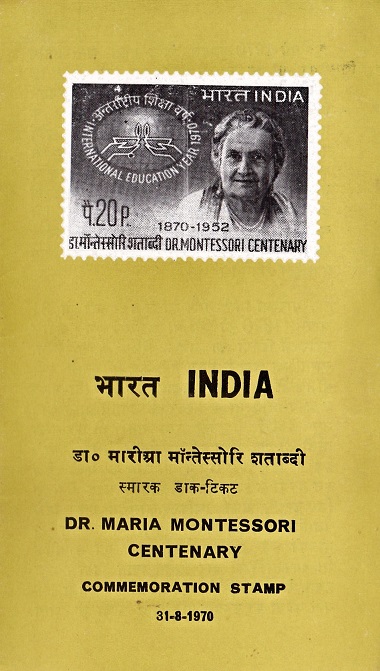 Issued by India
Issued by India
Issued on Aug 31, 1970
Issued for : The Indian P & T Department feels privileged to pay its homage to this great teacher by issuing a special postage stamp on the occasion of her birth centenary.
Description of Design : The design of the stamp is horizontal and features a portrait of Dr. Maria Montessori on the right side and on the left side, two lamps symbolising the progress of Education, with a globe for background surrounded by the inscription ‘International Education Year – 1970’.
Type : Stamp, Mint Condition
Colour : Plum
Denomination : 20 Paise
Overall Size : 3.91 X 2.90 cms.
Printing Size : 3.56 X 2.54 cms.
Perforation : 13 x 13
Paper : Printed on unwatermarked adhesive stamp paper
Number Printed : 30,00,000
Number per issue sheet : 35
Printing Process : Photogravure
Designed and Printed at : India Security Press
Name : Maria Tecla Artemesia Montessori
Born on Aug 31, 1870 at Chiaravalle, Marche, Italy
Died on May 6, 1952 at Noordwijk, Netherlands
About :
- The year 1970 has been designated by the United Nations as the International Education Year with a view to take stock of the existing situation, initiate concerted action for the expansion and improvement of education, make available greater resources and strengthen international co-operation in this field. The Indian P&T Department felt, that it would be an appropriate action to pay tribute to the memory of one, who was a distinguished pioneer in the field of child education.
- Maria Montessori was born in Italy on the 31st August, 1870. In an age when higher education for women had not won social acceptance even in Europe, she became the first woman to graduate from the University of Rome as a Doctor of Medicine & Surgery. In 1907 when placed in-charge of an institution in one of the slums of Rome, she found herself in the midst of a group of children from 3 to 6 years of age and applied her medical and psychological knowledge to help the natural development of normal children, taking at the same time, particular care of their neglected physical and mental needs. The results of this experiment disclosed that given the proper environment and help, children’s potentialities could flower amazingly. It inspired further studies in the children of different social strata and belonging to various countries. Out of these studies grew her conviction that there were no superior or inferior races, for, all men passed through the same stages of psychic development. Differences in mental acquisitions, she declared, were mostly due to possibilities offered by the environment or circumstances which either favoured or impeded their growth. Her insistence that children had the right to grow in freedom following the natural laws of development, that they had right to an environment suited to their physical and mental needs which would enable them to engage in spontaneous activity, both physically and mentally, led to the development of the renowned Montessori method of child education.
- During the Second World War, Dr. Montessori spent almost 10 years in India where her work drew the appreciation of even Mahatma Gandhi and Rabindranath Tagore, themselves educators of no mean stature. There are in India today Montessori training courses affiliated to Association Montessori Internationale (A.M.I.) which award diplomas for application of the Montessori method of education.
- The world-wide change in the attitude toward the small child and in his treatment at home and school, the modern awareness that child’s development should not be based on arbitrary social requirements or programmed instructions imposed from outside and that education should be guided by tendencies peculiar to the different phases of development the child passes through from birth to adulthood, is enduring testimony to the work of this venerable pioneer. The principles and techniques advocated by her are also applied to education of handicapped children and to adult education.


